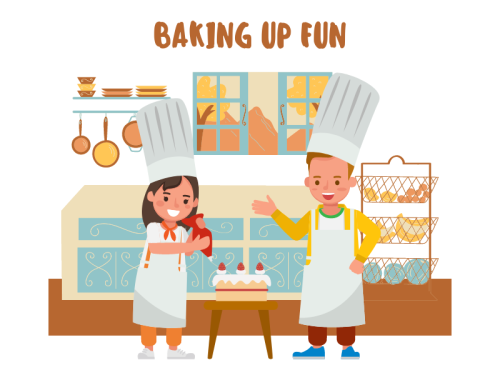by Daniel Yordy, M.Ed.
I have an article on Ezine Articles that describes my 12-year-old daughter's "Drawing Sketches" project. On Ezine Articles, a reader can register whether they like or dislike an article. Most people don't bother, but someone clicked the one-star rating for that article. Apparently, they had strong objections to the project-led, self-directed learning I am giving my daughter.
I am curious as to what those objections were. I can only speculate as to why someone would object to this approach to learning. Let me raise a couple of possible objections and give an answer for each.
1. Throwing a bunch of "Drawing" books at a 12-year-old kid and telling her to follow them is no way to teach a child anything. First, it is my daughter who wants to learn to draw, I did not require it. She is bright and capable. She tackled one book and found it difficult, so we tried another. Now, in just a few days time, she is drawing really good sketches of animals. She said recently, "Wow, I'm learning way faster than I would in art class at school."
And why is that? When I teach in the classroom, I must reduce the level of learning to the below average student. (And yes, one half of all children are below average.) People who think differently have never taught a group of children.
I guess some people imagine that kids simply don't want to learn or don't know how if they did. I see children as autonomous beings, free and independent, created in the image of God with His creative nature as part of the fabric of their being. They need guidance, certainly, but not control.
Here's something to think about: I had one student in eighth grade public school who, surrounded by other kids, confused, distracted, and bored, got straight F's in the classroom. To say he was not bright would have been generous. Then he got in trouble and was put into the disciplinary education program. There he was by himself with his work in front of him - for the most part self-directed, without distraction. He got straight A's – I was astonished at how brilliant his work was.
2. Not providing an "expert" teacher for your daughter means that she will miss out on much that she needs to learn about art.
I am a teacher. My first subject is writing. I am good at teaching writing, and my students do well for me. I know the value that a good teacher can bring into a child's life.
The decision to homeschool is based on entirely different factors than having or not having "teachers."
So, what do I say to my daughter? "Since I cannot pay for an "expert" artist to teach you to draw, you cannot learn to draw?" How disrespectful.
Could I be blunt? I have a Master's Degree in Education. That sounds great! Now, I love to learn and I enjoyed most of the courses in that program. Having that degree has gotten me higher pay as well.
But how practical are the things I was given by "expert" teachers? I use very little of it. What I use is what works in the classroom between myself and my students. And that comes from practical trial and error, the way most real things are learned.
Dependence on "experts" can be as much a hindrance as a benefit.
Meanwhile, my daughter showed me the head of a bear with a fish in its mouth that she drew. She's good, and she will get better. She is teaching herself to draw.
Then, when she has her own style well-developed, I may well pay an "expert" teacher to fill in the gaps. That teacher will add to my daughter's knowledge, he or she will not be the source of it.
As I have developed the Project Guides, and as they have grown in value in the process, I have discovered two underlying skills that seem to weave their way through most, if not all of the Projects. The largest of those skills is drawing sketches of what is observed - or drawing and reading plans. Second, found in every Project, is the skill of keeping accounts.
I do not believe this is inconsequential. In fact, I am willing to propose that drawing sketches and plans, and keeping accounts, are skills that undergird all real-world learning.
In exploring nature, in observing rabbits or chickens, in looking through a microscope or telescope, the student draws what he or she sees. In all of the Math/Logical and Technological Guides I have written so far, the student reads plans and draws plans of things to build. The Vocational Guides are the same.
There is a development of mind, of thinking and logic skills, of understanding the physical world, that comes through the hand-mind-eye connection that is found primarily in drawing and interpreting sketches and plans.
For that reason, I give away for free the "Drawing Sketches" Project Guide. You can receive a copy of your own just by signing up for my newsletter “A Different Way to Learn.”
The Guides that I write are simply guides, not controls. You can pick and chose any part for your children to do. You decide which materials to purchase - there are many great instructional sites on the Internet for free. And there are some really fun things to do. The Steps in Drawing Sketches are as follows:
• Step 1: Start Drawing
• Step 2: Become an Artist
• Step 3: Keep a Journal or Sketchbook
• Step 4: The Tools & Vocabulary of Drawing
• Step 5: Use Drawing Software
• Step 6: Specialize Your Drawing
• Step 7: Produce a Work of Art
• Step 8: The World of Drawing & Competitions
• Step 9: Drawing in History & Literature
• Step 10: Share Your Portfolio
Enjoy! And check out the rest of the completed Project Guides. Your children may insist on project-led learning once they have had the opportunity to experience it.
Daniel Yordy has worked with teenagers for over thirty years, both on the job, doing a wide range of activities with young men and women from construction to woodworking to gardening to milking cows, and in school, public, private, and home school. While obtaining his Masters Degree, he pondered the difference between the dictates of “modern education” and the practical reality he already knew produced far superior learning results than anything contrived in the modern (pretend) classroom. The result is Project-Led Learning, a weaving of the objectives of education into the actions of real-life, personal projects that contribute to a young person’s life and family.
Out of the philosophy of Project-Led Learning, Mr. Yordy has devised a series of Project Guides in ten different categories of learning. You can find out more about these exciting Guides at http://www.yguideacademy.com/ProjectLedLearning.html
I have an article on Ezine Articles that describes my 12-year-old daughter's "Drawing Sketches" project. On Ezine Articles, a reader can register whether they like or dislike an article. Most people don't bother, but someone clicked the one-star rating for that article. Apparently, they had strong objections to the project-led, self-directed learning I am giving my daughter.
I am curious as to what those objections were. I can only speculate as to why someone would object to this approach to learning. Let me raise a couple of possible objections and give an answer for each.
1. Throwing a bunch of "Drawing" books at a 12-year-old kid and telling her to follow them is no way to teach a child anything. First, it is my daughter who wants to learn to draw, I did not require it. She is bright and capable. She tackled one book and found it difficult, so we tried another. Now, in just a few days time, she is drawing really good sketches of animals. She said recently, "Wow, I'm learning way faster than I would in art class at school."
And why is that? When I teach in the classroom, I must reduce the level of learning to the below average student. (And yes, one half of all children are below average.) People who think differently have never taught a group of children.
I guess some people imagine that kids simply don't want to learn or don't know how if they did. I see children as autonomous beings, free and independent, created in the image of God with His creative nature as part of the fabric of their being. They need guidance, certainly, but not control.
Here's something to think about: I had one student in eighth grade public school who, surrounded by other kids, confused, distracted, and bored, got straight F's in the classroom. To say he was not bright would have been generous. Then he got in trouble and was put into the disciplinary education program. There he was by himself with his work in front of him - for the most part self-directed, without distraction. He got straight A's – I was astonished at how brilliant his work was.
2. Not providing an "expert" teacher for your daughter means that she will miss out on much that she needs to learn about art.
I am a teacher. My first subject is writing. I am good at teaching writing, and my students do well for me. I know the value that a good teacher can bring into a child's life.
The decision to homeschool is based on entirely different factors than having or not having "teachers."
So, what do I say to my daughter? "Since I cannot pay for an "expert" artist to teach you to draw, you cannot learn to draw?" How disrespectful.
Could I be blunt? I have a Master's Degree in Education. That sounds great! Now, I love to learn and I enjoyed most of the courses in that program. Having that degree has gotten me higher pay as well.
But how practical are the things I was given by "expert" teachers? I use very little of it. What I use is what works in the classroom between myself and my students. And that comes from practical trial and error, the way most real things are learned.
Dependence on "experts" can be as much a hindrance as a benefit.
Meanwhile, my daughter showed me the head of a bear with a fish in its mouth that she drew. She's good, and she will get better. She is teaching herself to draw.
Then, when she has her own style well-developed, I may well pay an "expert" teacher to fill in the gaps. That teacher will add to my daughter's knowledge, he or she will not be the source of it.
As I have developed the Project Guides, and as they have grown in value in the process, I have discovered two underlying skills that seem to weave their way through most, if not all of the Projects. The largest of those skills is drawing sketches of what is observed - or drawing and reading plans. Second, found in every Project, is the skill of keeping accounts.
I do not believe this is inconsequential. In fact, I am willing to propose that drawing sketches and plans, and keeping accounts, are skills that undergird all real-world learning.
In exploring nature, in observing rabbits or chickens, in looking through a microscope or telescope, the student draws what he or she sees. In all of the Math/Logical and Technological Guides I have written so far, the student reads plans and draws plans of things to build. The Vocational Guides are the same.
There is a development of mind, of thinking and logic skills, of understanding the physical world, that comes through the hand-mind-eye connection that is found primarily in drawing and interpreting sketches and plans.
For that reason, I give away for free the "Drawing Sketches" Project Guide. You can receive a copy of your own just by signing up for my newsletter “A Different Way to Learn.”
The Guides that I write are simply guides, not controls. You can pick and chose any part for your children to do. You decide which materials to purchase - there are many great instructional sites on the Internet for free. And there are some really fun things to do. The Steps in Drawing Sketches are as follows:
• Step 1: Start Drawing
• Step 2: Become an Artist
• Step 3: Keep a Journal or Sketchbook
• Step 4: The Tools & Vocabulary of Drawing
• Step 5: Use Drawing Software
• Step 6: Specialize Your Drawing
• Step 7: Produce a Work of Art
• Step 8: The World of Drawing & Competitions
• Step 9: Drawing in History & Literature
• Step 10: Share Your Portfolio
Enjoy! And check out the rest of the completed Project Guides. Your children may insist on project-led learning once they have had the opportunity to experience it.
Daniel Yordy has worked with teenagers for over thirty years, both on the job, doing a wide range of activities with young men and women from construction to woodworking to gardening to milking cows, and in school, public, private, and home school. While obtaining his Masters Degree, he pondered the difference between the dictates of “modern education” and the practical reality he already knew produced far superior learning results than anything contrived in the modern (pretend) classroom. The result is Project-Led Learning, a weaving of the objectives of education into the actions of real-life, personal projects that contribute to a young person’s life and family.
Out of the philosophy of Project-Led Learning, Mr. Yordy has devised a series of Project Guides in ten different categories of learning. You can find out more about these exciting Guides at http://www.yguideacademy.com/ProjectLedLearning.html





